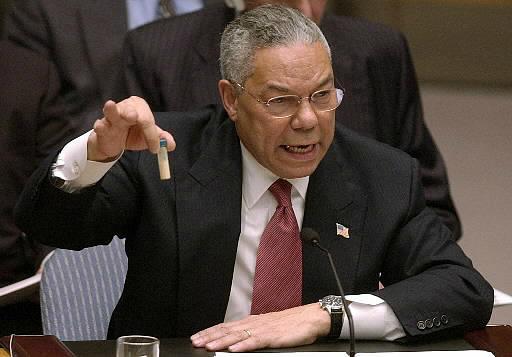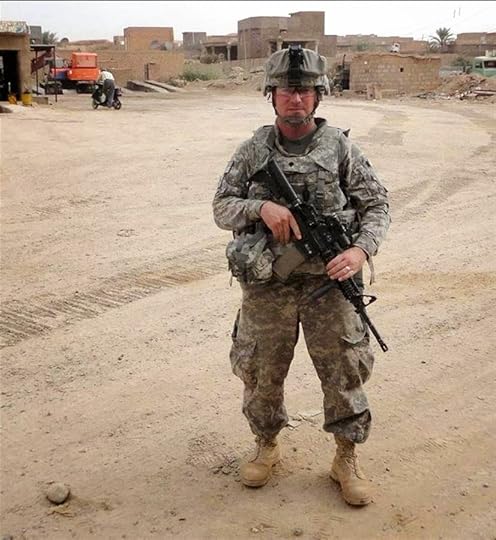Greg Mitchell's Blog, page 105
April 4, 2014
AP Photog Shot Dead in Kabul, Reporter Badly Hurt
KABUL, Afghanistan (AP) — A veteran Associated Press photographer was killed and an AP reporter was wounded on Friday when an Afghan policeman opened fire while they were sitting in their car in eastern Afghanistan.
Anja Niedringhaus, 48, (left), an internationally acclaimed German photographer, was killed instantly, according to an AP Television freelancer who witnessed the shooting.
Kathy Gannon, the reporter, was wounded twice and is receiving medical attention. She was described as being in stable condition and talking to medical personnel.
"Anja and Kathy together have spent years in Afghanistan covering the conflict and the people there. Anja was a vibrant, dynamic journalist well-loved for her insightful photographs, her warm heart and joy for life. We are heartbroken at her loss," said AP Executive Editor Kathleen Carroll, speaking in New York.
The two were traveling in a convoy of election workers delivering ballots from the center of Khost city to the outskirts, in Tani district. The convoy was protected by the Afghan National Army and Afghan police. They were in their own car with a freelancer and a driver.
According to the freelancer, they had arrived in the heavily guarded district compound shortly before the incident.
Published on April 04, 2014 07:32
11 Years Ago: Where Were All Those Iraqi WMDs?
 If the results of the war were not so tragic, one could also grin and bear this editorial from the NYT eleven years ago this week, which first raised concerns about the so far missing WMDs in Iraq. You'll see as you read on that the Times--one of the prime movers for the war due to its many false alarms about the certain existence of such weapons--still seems to feel that surely they must exist, although possibly in smaller quantities than it once trumpeted.
If the results of the war were not so tragic, one could also grin and bear this editorial from the NYT eleven years ago this week, which first raised concerns about the so far missing WMDs in Iraq. You'll see as you read on that the Times--one of the prime movers for the war due to its many false alarms about the certain existence of such weapons--still seems to feel that surely they must exist, although possibly in smaller quantities than it once trumpeted.But near the start you'll see that it raises the essential "mystery"--if Saddam does have the dreaded weapons why hasn't he used them against us? Unfortunately, the media and Democrats did not raise this question--which a few people (such as myself) had emphasized: If Saddam had the WMDs as charged why were we so confident about a grund invasion that could have taken tens of thousands of American lives? Unless Bush and his team felt from the start that Saddam likely had little or nothing for us to fear.
Here's the opening of that editorial:
As allied forces seize control of more Iraqi real estate every day, one of the great questions still to be answered is whether Saddam Hussein has the unconventional weapons that were cited as the prime reason for launching the invasion. Most Western analysts believe that Mr. Hussein has at least some chemical and biological arms. Otherwise, they reason, he could have headed off the invasion by showing that he had destroyed his previously known chemical and biological stocks. Yet if Iraq does have chemical weapons, Mr. Hussein has shown remarkable restraint by not using them even as his government heads for certain destruction. Solving this mystery requires urgent, neutral investigation once the allies gain full control of Iraq and can mount a sustained search.Greg Mitchell's new book on Iraq and media malpractice is "So Wrong for So Long."
Published on April 04, 2014 06:26
April 3, 2014
Recipe of the Year
 It was the oddest thing. Years ago I used to check out the NYT Sunday Magazine recipes almost every week, even tear them out from time to time and try them. Not for awhile. Couple weeks back I happened to get that far in the mag and grew entranced with a rare double-page spread with a large photo of dish they were touting, as part of the usual round-up of what average Joe dishes well-known chefs make at home. The picture in vivid color showed, in an appealing whiute pan, browned chicken thighs, surrounded by heaps of shallots and cherry tomatoes, in a mustard-wine-tarragon sauce. Not something I'd automatically try...but that photo....
It was the oddest thing. Years ago I used to check out the NYT Sunday Magazine recipes almost every week, even tear them out from time to time and try them. Not for awhile. Couple weeks back I happened to get that far in the mag and grew entranced with a rare double-page spread with a large photo of dish they were touting, as part of the usual round-up of what average Joe dishes well-known chefs make at home. The picture in vivid color showed, in an appealing whiute pan, browned chicken thighs, surrounded by heaps of shallots and cherry tomatoes, in a mustard-wine-tarragon sauce. Not something I'd automatically try...but that photo....Tore it out and to my surprise, in the days since, have seen countless tweets and Facebook postings (with photos) of people who tried it pronto, including some well-known folks. I finally got to making it tonight and ...yes, fantastic! Just watched the salt and don't over-mustard....Recipe here.
Published on April 03, 2014 17:21
Attack on Camera
CBS reporter in Chicago attacked tonight by anti-Obama protestor shouting "war criminal."
Published on April 03, 2014 16:59
As Letterman Quits--A Look Back
With Leno gone, Letterman, having outlasted him, announced retirement today. Here, from his first late night NBC show more than 30 years ago, with first guest, Bill Murray.
Published on April 03, 2014 13:38
Lack of 'Gravity'
What might have made the film more interesting...Superman?
Published on April 03, 2014 13:30
When Cagney and Hepburn Resisted GOP Strong-Arm Tactics
 My new ebook, When Hollywood Turned Left, was published last week. Derived from my earlier The Campaign of the Century (which won the Goldsmith Book Prize), with new material, it focuses on the wild response in Hollywood--then controlled by conservative Republicans--to leftwing author Upton Sinclair winning the Democratic primary for governor, leading a mass movement, in 1934. This included the creation of the first use of the screen for "attack ads"--thanks to MGM's Irving Thalberg. The right-wing attack was so outrageous it sparked liberals out there to organize and Hollywood has titled left ever since.
My new ebook, When Hollywood Turned Left, was published last week. Derived from my earlier The Campaign of the Century (which won the Goldsmith Book Prize), with new material, it focuses on the wild response in Hollywood--then controlled by conservative Republicans--to leftwing author Upton Sinclair winning the Democratic primary for governor, leading a mass movement, in 1934. This included the creation of the first use of the screen for "attack ads"--thanks to MGM's Irving Thalberg. The right-wing attack was so outrageous it sparked liberals out there to organize and Hollywood has titled left ever since.Here's an excerpt re: one of the most notorious aspects--almost all the studio chiefs docked their employees, from low-level to top stars, one day's pay to go for the slush fund of the Republican candidate, Frank Merriam. One of those who protested but lacked the clout to resist was the young screenwriter Billy Wilder, who had arrived in the U.S. just recently. Jimmy Cagney and Kate Hepburn, already top stars, did fight back.
**
Another Hollywood figure rebelling against the so-called Merriam
tax was that "professional againster" James Cagney. He was back in Los
Angeles after shooting Devil Dogs of the Air in San Diego. Politically,
Jimmy was still skating on thin ice thanks to the flap over his alleged
role in last summer's Communist uprising, so it behooved him to go
along with Jack Warner's request for money for Merriam. But Cagney
wouldn't sign the studio's check.
At least that's what he told Frank Scully, head of the writers' committee
for Upton Sinclair, when they met, for secrecy's sake, just outside the
Warner Brothersgate. Scully found it amusing that two solid Americans
were huddling on the street, speaking in whispers, as if they were
plotting a revolution. Cagney told Scully not only that he had refused
to sign the check delivering one day's wage to Merriam but that if the
studio forced him, he would donate one week's salary to Sinclair. Since
that represented a six-to-one advantage for EPIC, Jimmy figured that
would stop them.
Unlike the writers, Hollywood's acting talent, with the exception of
Jimmy Cagney and a handful of others, seemed to go along with the
Merriam tax without much of a fuss. Early reports that Jean Harlow
planned to buck the system proved premature. But the name of another
young star supposedly fighting the Merriam tax had surfaced in Holly-
wood. It raised eyebrows, for the actress, Katharine Hepburn, had much
to lose, having just won an Academy Award. While Jean Harlow's
career, in the Production Code "decency" era, appeared to be imperiled,
Hepburn had clear sailing.
But 1934, by and large, was not kind to Kate. With her career stalled,
After a flop or two, criticism of Hepburn's cool manner and
unconventional dress mounted. Gossip columnists referred to her as La
Hepburn. One writer dryly commented that she "occasionally has
human impulses and she is not all snobbery and self-satisfaction." On
October 7, Louella Parsons revealed that "photographers have agreed
not to take a single pix of her because she's been so rude."
Yet, if anything, Hepburn took herself less seriously than others did.
When her habit of wearing men's pants caused a stir in Paris, she
commented, "I couldn't be dignified if I tried." She hated reading refer-
ences to Kit Hepburn as the mother of Katharine Hepburn. "My
mother is important," she explained, "I am not." Kate wished she could
paint, play music, or write books instead of act, but "alas, I'm not
talented at all." With her friend Laura Harding she lived in an isolated
home in Coldwater Canyon.
As the California governor's race heated up this autumn, Hepburn
was filming The Little Minister, based on the J. M. Barrie play, for
RKO. It was a big-budget production, and the studio expected the film
to put Hepburn's career back on track. With that much invested, RKO
executives could not have been pleased when rumors circulated that
Kate Hepburn favored Upton Sinclair or would not pay the "Merriam
tax," or both. Now the Los Angeles district attorney had sent an investi-
gator to find out what Hepburn really believed—and whether RKO had
threatened to punish her for those beliefs.
Published on April 03, 2014 13:13
Fort Hood Shooter's Very Normal Facebook Page
 NBC has details and more photos. No warning signs at all. No rants or nuttiness or (apparently) politics. Photos of his kids. Etc. Meanwhile, sources tell ABC the gun used at Ft. Hood was purchased from same store Nidal Hasan purchased his gun in 2009. Gun galore at Guns Galore.
NBC has details and more photos. No warning signs at all. No rants or nuttiness or (apparently) politics. Photos of his kids. Etc. Meanwhile, sources tell ABC the gun used at Ft. Hood was purchased from same store Nidal Hasan purchased his gun in 2009. Gun galore at Guns Galore.
Published on April 03, 2014 11:03
IAVA on Fort Hood
Iraq and Afghanistan Veterans of America chief Paul Rieckhoff with this statement just now on (latest) Ft. Hood shootings:
"The military and veteran community is an incredibly tight knit group and our hearts and prayers go out to those affected by the Fort Hood tragedy. IAVA's #1 priority right now is to provide support to our community in Texas and worldwide. We ask all Americans to make it their priority too.
While we still don't know the details about what motivated yesterday's tragic events, it's important we remember that our men and women currently in uniform and the veterans who have returned home from the wars are amongst the finest and most dedicated people in America and the actions of one individual don't diminish or change that fact. In moments like this, there is a tendency by some to paint a broad brush across the entire veterans community and it's important to guard against that mistake. We encourage everyone--especially those in the media and political positions--to be thoughtful and responsible in their reactions and to remember that correlation does not imply causation.
At the same time we recognize that the vast majority of our military and vets are not in crisis, we must all acknowledge that there are indeed problems with the way mental health care and transitional support is managed and available to our servicemembers and veterans. As we did last week in Washington with our Campaign to Combat Suicide during Storm the Hill, IAVA will continue to advocate for urgent and practical solutions to these problems and challenge our leaders to help us solve them in the weeks and months ahead."
IAVA's 2014 Policy Agenda is available here.
Published on April 03, 2014 10:45
Roy, Before the Comeback
 Yikes, 40 years have passed since I wrote the liner notes for this obscure Roy Orbison album. I claimed he could "hit the highs, lick the lows, and invigorate the in-betweens." As payment he gave me a copy of his first Sun single, the immortal "Ooby Dooby."
Yikes, 40 years have passed since I wrote the liner notes for this obscure Roy Orbison album. I claimed he could "hit the highs, lick the lows, and invigorate the in-betweens." As payment he gave me a copy of his first Sun single, the immortal "Ooby Dooby."
Published on April 03, 2014 09:56



